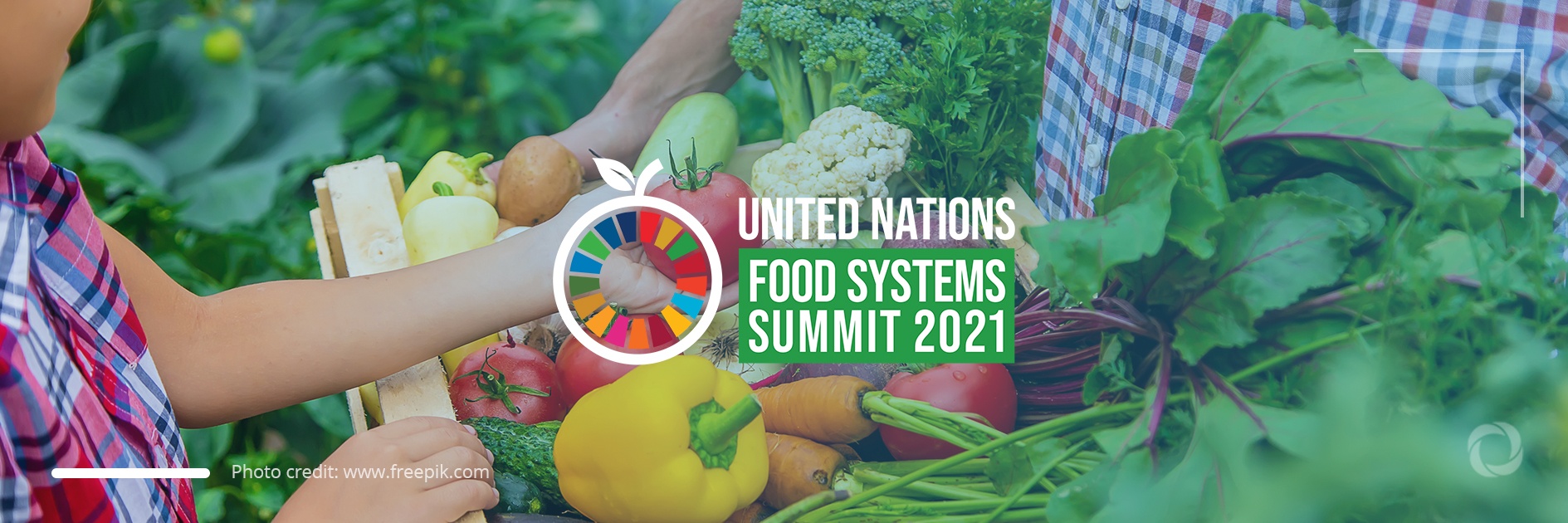On 26 July 2021 the International Panel of Experts on Sustainable Food Systems (IPES-Food) announced its decision to withdraw from the UN Food Systems Summit due to take place in early autumn 2021. Three experts from the panel who were to engage in activities contributing to the dialogue on food systems transformation will no longer be involved. As the main mission of the summit is to make food systems more sustainable, the question arises whether this decision will help to make this change happen or the opposite by depriving the Summit’s participants of valuable and urgently needed evidence and the support of experts.
Despite the high productivity gains and cheap calories that current food systems provide, food security is still a serious issue in many countries with about 2 billion people lacking regular access to sufficient, nutritious, and safe food and 690 million people going hungry. In fact, according to the FAO, the prevalence of severe food insecurity rose between 2014 and 2019 in all regions of the world apart from Europe and Northern America. Not only are these food systems failing to provide healthy diets to billions, they do not take into account health and the climate-related hidden costs of production and consumption – something that may have grave repercussions for society as a whole.
What is IPES-Food and what is its role in the future of food policy?
The International Panel of Experts on Sustainable Food Systems (IPES-Food) is an independent body of 24 internationally recognised experts and researchers with knowledge and experience in multiple areas including human rights, economics, food security, conservation, and the use of agricultural biodiversity and education to name just a few. Its mission is “to promote a transition to sustainable food systems around the world”. The importance of this panel lies within its transdisciplinary and systemic approach to problems in agriculture, rural development, and food systems in general. Thus, since 2015 it has played an important role in shaping the debate on food systems globally and has produced scientific reports and policy recommendations on this matter.
The withdrawal from the Summit
Recently, the panel announced that three of its members who had been assigned roles in the UN Food Summit process would no longer take part in the event. The areas concerned are Boosting Nature-Positive Production at Sufficient Scales, Champions Network, and Solution Cluster on Agroecology and Regenerative Agriculture.
“We do so with regret: the world urgently needed a food systems summit, but not this Summit,” says IPES-Food Memo.
The reasons behind the decision are mainly related to the ‘architecture’ of the summit. According to IPES-Food, the summit was launched without the involvement of the Committee on World Food Security (CFS) which ensures the participation and involvement of all relevant actors in the dialogue. It also emerged that it was a specific and small group of actors who had set the agenda and defined the rules of engagement thus jeopardising the legitimacy of the event and its outcomes. In its announcement the panel also notes its disagreement with the proposal for a new Scientific Group of the UNFSS, a science-policy interface that will provide decision-makers with the most relevant and up-to-date data and knowledge, stressing its bias, lack of transparency, and business as usual approach.
See also: Impartiality of UN Food Systems Summit under question
Food systems transformation needs IPES-Food
While standing by its position regarding the way the summit is being held and the inclusiveness of its process, IPES-Food will be acknowledged for its role in transforming food systems.
The presence and participation of IPES-Food are crucial to address the food systems in place that rely on intensive monoculture and the use of agrochemicals which allow farmers to produce large amounts of low-calorie food and double or triple productivity. However, temporary high yields do come at a price.
See also: Can high yields today ensure our food in 10 years?
According to the IPES-Food report, A Long Food Movement: Transforming Food Systems by 2045, the world can expect a rise in antibiotic-resistant organisms, wildfires, droughts, and floods which, with the current degradation of water, topsoil, and forest losses, will occur with horrifying regularity. There is a business as usual scenario that may be put in place if technological innovations such as digitalization, automation, molecular technologies, and nature modification continue to be viewed as the solution to food systems’ problems:
“While countries and corporations may succeed in appropriating resources, they will still be left to grapple with extreme volatility. Supply shocks, price spikes, and food shortages are likely to become a regular occurrence as several trends collide over the coming years. A number of zoonotic and foodborne diseases, arising in particular from the industrial food chain (and specifically industrial livestock farms), are likely to proliferate over the coming years and decades.”
There is also an alternative scenario for food systems which is rooted ‘in diversity, agroecology, and human rights’ that will offer higher resilience in the face of environmental and socio-economic shocks and IPES-Food is the body that can help to achieve this.
See also: Agroecology – a solution to world food system’s failure
The UN Food Systems Summit presents a range of opportunities for experts to convey their arguments and solutions to many more decision-makers and non-state stakeholders who can be provided with evidence for ‘food systems that are just, equitable, and operate within planetary boundaries’ which are already penetrating and having an effect on political agendas.
See also: Agroecology financing: breaking through ‘inertia’ and building the momentum
In its memo, the panel acknowledged the progress made:
“We note the important progress on agroecology and congratulate States and other allies for bringing attention to its transformative potential and ensuring it has a place on the pre-Summit agenda.”
Taking this into consideration, IPES-Food and its contribution could counteract the shortcomings it alleges are the reasons for its withdrawal while pursuing its vision and persistence to achieving the best scenario of the ‘Long Food Movement’. The Summit is the opportunity to make the case for the pathway to resilience and sustainability by advancing the international agenda towards deep transformation of our current food systems.


